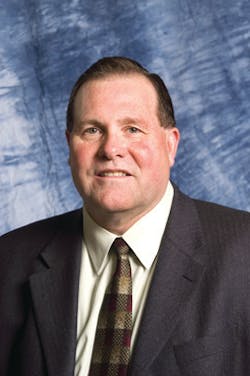Fire Politics: Is It Ever Simply Too Personal?
Have you ever heard of or witnessed a situation in which two principal leaders from two separate organizations let their personal dislike for each other interfere with their decision-making? Sometimes, this situation interferes with doing what is in the best interest of their organizations and even the very people they are supposed to be leading.
We probably all have seen or heard about this, but for some reason, we don’t seem to talk about it much because “that’s just the politics of situations, and there isn’t much that can be done to remedy it. It’s always been that way – and it always will be. We can’t make people like each other.” Part of that may be true, but we certainly can raise our expectations of leaders and cause them to behave in ways that produce the best possible outcomes and are truly in the best interest of their membership – not just themselves.
Real-life examples
It is interesting that when we discuss political effectiveness and leadership effectiveness, this particular issue is rarely addressed in straightforward terms, and leaders are rarely held accountable for it either. In just the past couple of months, I have seen or been told about several dysfunctional situations created by the personal dislike of two leaders – from two separate organizations – for each other. Let me share just a few of them:
• Two neighboring fire departments are facing potential budget cutbacks that could result in layoffs, unless ways can be found to reduce expenditures. The members of the two departments, and even some elected officials from both communities, are willing to consider ways to work through the complex fiscal situation together, avoiding the need to eliminate any positions. However, the fire chiefs of the two departments have a negative history – they dislike each other and don’t want to cooperate to find common ground.
The energy and actions of both fire chiefs are directed at finding reasons to not work together, rather than finding ways to succeed for the benefit of their members and their communities. Their approach makes the elected officials uneasy about moving forward together.
• A city manager and mayor decide they may want to hire an outside consulting firm to conduct an “objective” performance study of the fire department. The purpose of the study is to “significantly reduce costs while improving public safety in the process.” The fire chief and the union president in this fire department have a negative history with each other dating back to before either of them were in their current positions. Bottom line, they don’t like each other and they both go out of their way to make the other look incompetent and selfish.
For the benefit of the members of their fire department, most of whom are also members of the union, it would greatly behoove these two leaders to put their personal issues aside and work together to deal with such things as whether there is a need for the study. If so, how should the consulting firm be selected? What guidance should be provided to the consultants from the city and the fire department before the study unfolds, and as it progresses? What roles will fire administration and the union play in the process, if any? There are several other important considerations as well.
Against the wishes of many of their members, the union president and the fire chief in this department decide to proceed separately, rather than find some common ground in dealing with these critical questions. They are cautioned by colleagues that their chosen course of action is a dangerous approach, but they simply refuse to put their personal differences aside for the betterment of those who they are supposed to lead and the citizens they are sworn to serve.
• Sometimes, the interests of the same fire service members are represented by more than one national fire service organization at the same time regarding the same issue. It is not uncommon to encounter situations in which the collective cooperation of these organizations is essential to creating positive outcomes concerning political and other types of issues. However, there may be principal leaders within these organizations who have a personal dislike for each other, often dating back many years. Sadly, there may be times when rather than making decisions that consistently meet the needs of their members, the leaders may do and say things that may actually put their members at a disadvantage. This is not usually done to benefit their constituents, but rather to put the other leader at a disadvantage and foster their mutual dislike for each other.
Open for discussion
The leadership and political realities addressed in this column is not only embarrassing to write about; it is probably embarrassing to read about as well. The three scenarios shared in this column are examples of egotistical and self-centered leadership. These, and similar situations, have occurred inside and outside the fire service for as long as leaders from multiple organizations – who don’t like each other – have had the need to co-exist. It may be uncomfortable to talk about the issue, but maybe it’s time we did so a little more.
I’m not talking about refusing to work with certain people because of their negative track record, lack of values or dishonesty – that’s understandable and not what this column is about. I’m talking about leaders not letting personal dislikes of certain people get in the way of doing what is best for their members, and sometimes the public as well.
We are faced with myriad political and operational challenges in the fire service today. To meet them, our leaders must focus on the interests of their members as a “whole.” To make sure that this occurs, maybe we should all hold our leaders more responsible and accountable for doing just that.
DENNIS COMPTON, a Firehouse® contributing editor, is a speaker and the author of Progressive Leadership Principles, Concepts and Tools, the When in Doubt, Lead! books, the book Mental Aspects of Performance for Firefighters and Fire Officers, and many articles, chapters and other publications. He was the fire chief in Mesa, AZ, for five years and assistant fire chief in Phoenix, where he served for 27 years. Compton is past chairman of the Executive Board of the International Fire Service Training Association (IFSTA) and past chairman of the Congressional Fire Services Institute’s National Advisory Committee. He is currently chairman of the National Fallen Firefighters Foundation Board of Directors.
About the Author

Dennis Compton
Chief
DENNIS COMPTON is a well-known speaker and the author of several books, including his most recent offering titled Progressive Leadership Principles, Concepts and Tools. He also authored the three-part series of books titled When in Doubt, Lead, the book Mental Aspects of Performance for Firefighters and Fire Officers, as well as many articles, chapters and other publications. Compton was the fire chief in Mesa, AZ, for five years and an assistant fire chief in Phoenix, where he served for 27 years. He is past chairman of the Executive Board of the International Fire Service Training Association (IFSTA) and past chairman of the Congressional Fire Services Institute (CFSI) National Advisory Committee. Compton is currently the chairman of the National Fallen Firefighters Foundation (NFFF) Board of Directors and co-chairs the Fire Service-Based EMS Advocates Steering Committee.
